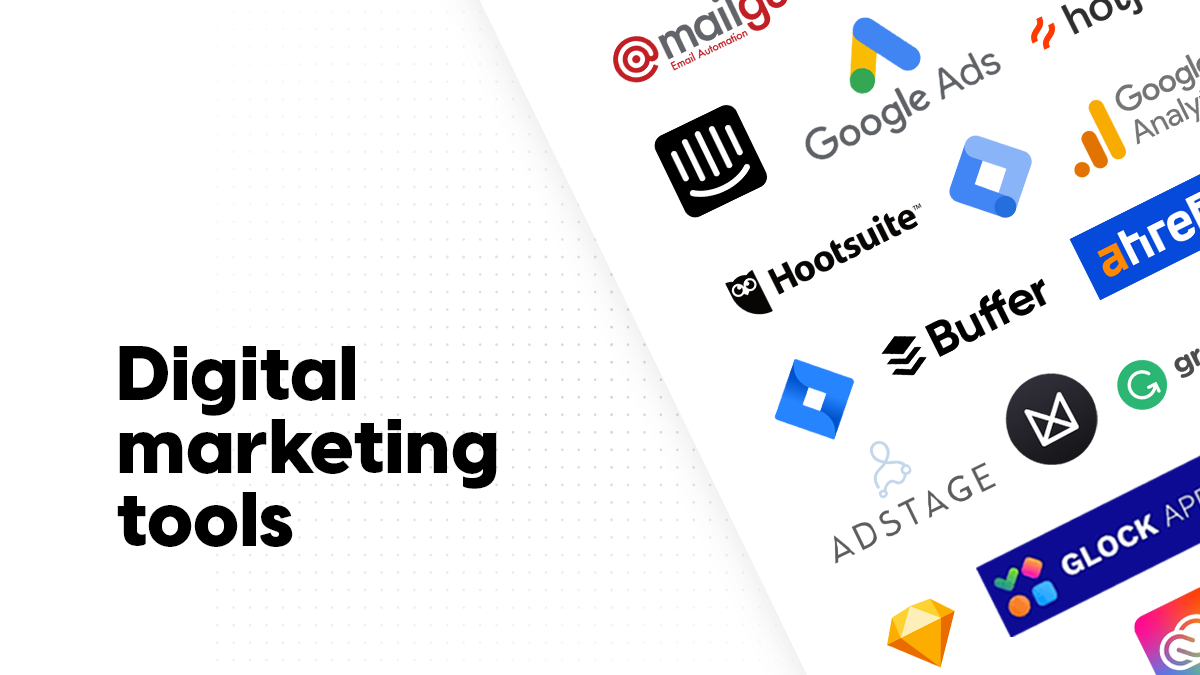Digital marketing tools have become indispensable for businesses of all sizes. In today’s competitive landscape, simply having a marketing strategy isn’t enough; you need the right tools to effectively reach your target audience, analyze performance, and optimize your campaigns. Choosing the appropriate tools can significantly impact your ROI and overall marketing success. This guide explores a range of essential digital marketing tools, helping you navigate the often-complex world of online marketing. Let’s dive in and discover how to leverage these resources to boost your business.

Understanding the Landscape of Digital Marketing Tools
![]()
Before we delve into specific tools, it’s important to understand the diverse categories of digital marketing tools available. These tools can be broadly categorized into:
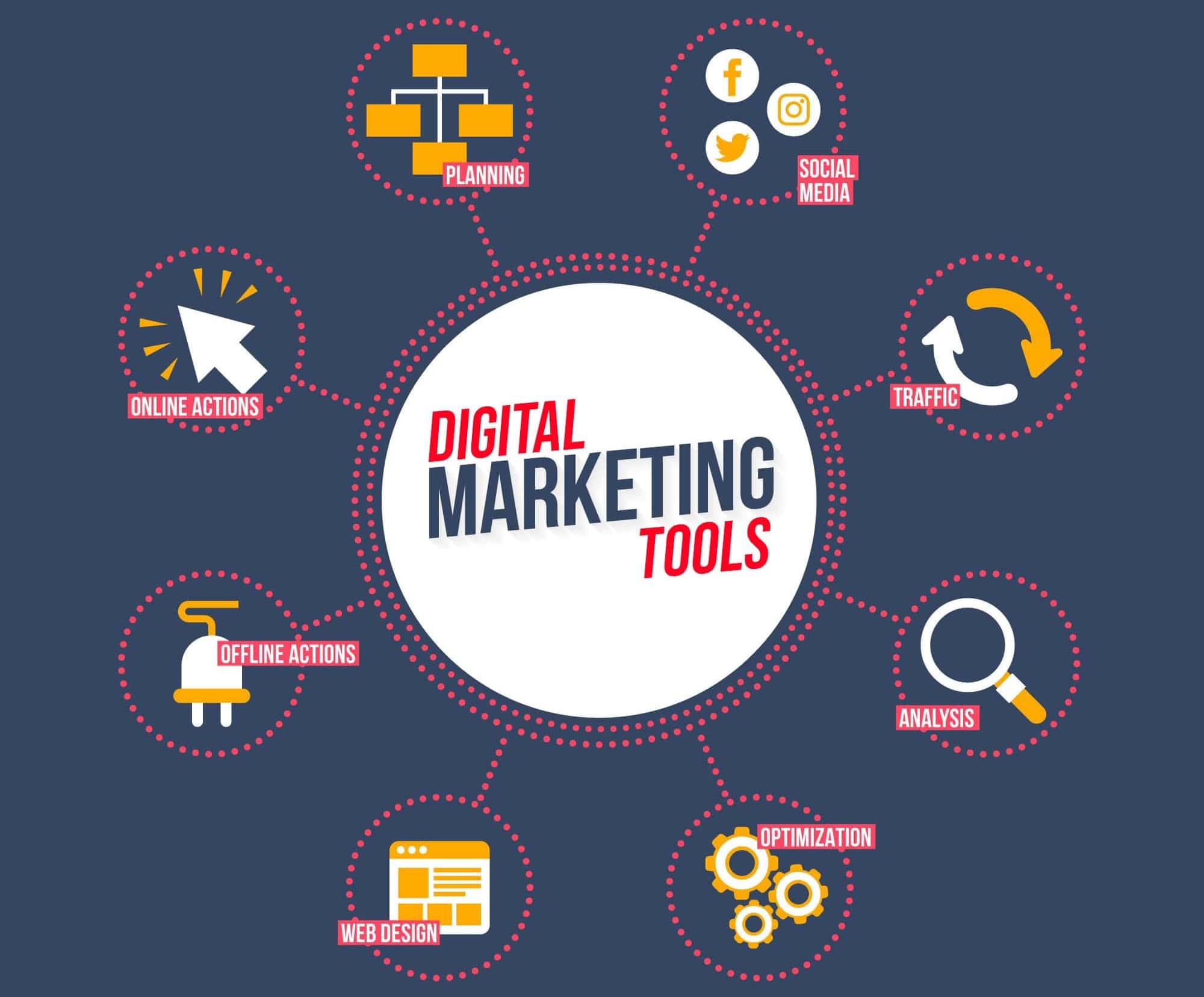
- Social Media Management: Platforms for scheduling posts, monitoring engagement, and analyzing social media performance.
- Email Marketing: Tools for creating and sending targeted email campaigns, managing subscriber lists, and tracking results.
- SEO Tools: Tools for keyword research, competitor analysis, website audits, and tracking rankings.
- Analytics & Reporting: Platforms for collecting and analyzing data to measure campaign effectiveness and identify areas for improvement.
- Content Creation: Tools for generating blog posts, social media content, and other marketing materials.
- Paid Advertising: Platforms for managing and optimizing paid advertising campaigns on platforms like Google Ads and Facebook Ads.
Choosing the right tools depends heavily on your specific business goals, budget, and the type of marketing you’re undertaking. A comprehensive approach often involves utilizing a combination of these tools to achieve optimal results.
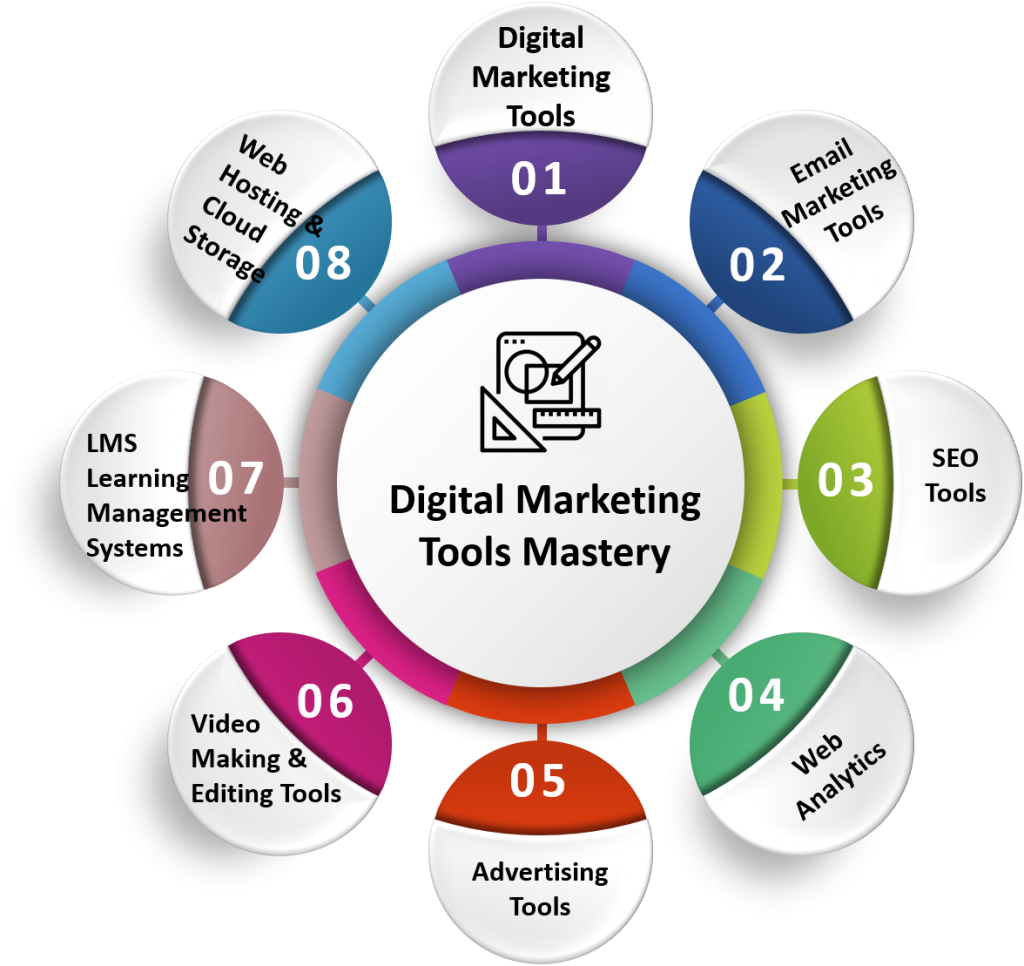
Social Media Management – Connecting with Your Audience
Social media is no longer just about posting updates; it’s about building relationships and engaging with your audience. Effective social media management tools streamline this process, allowing you to schedule posts, monitor conversations, and analyze performance. Popular options include:

- Hootsuite: A robust platform for scheduling posts across multiple social media channels (Facebook, Instagram, Twitter, LinkedIn, Pinterest, and more). It offers analytics and reporting capabilities.
- Buffer: Known for its user-friendly interface and focus on scheduling. Buffer provides insights into audience engagement and helps you optimize your posting schedule.
- Sprout Social: A more comprehensive solution with advanced analytics, social listening, and team collaboration features. It’s particularly well-suited for larger businesses.
- Later: Primarily focused on Instagram scheduling and visual content planning. It offers features like hashtag suggestions and visual planning tools.
Key Features to Consider:
- Scheduling: Ability to schedule posts in advance to maximize reach.
- Analytics: Tracking of post performance, engagement, and audience demographics.
- Collaboration: Tools for team members to work together on social media campaigns.
- Social Listening: Monitoring brand mentions and industry trends.
Email Marketing – Nurturing Leads and Building Relationships
Email marketing remains a powerful channel for nurturing leads, promoting products and services, and building customer loyalty. Several excellent email marketing platforms are available:
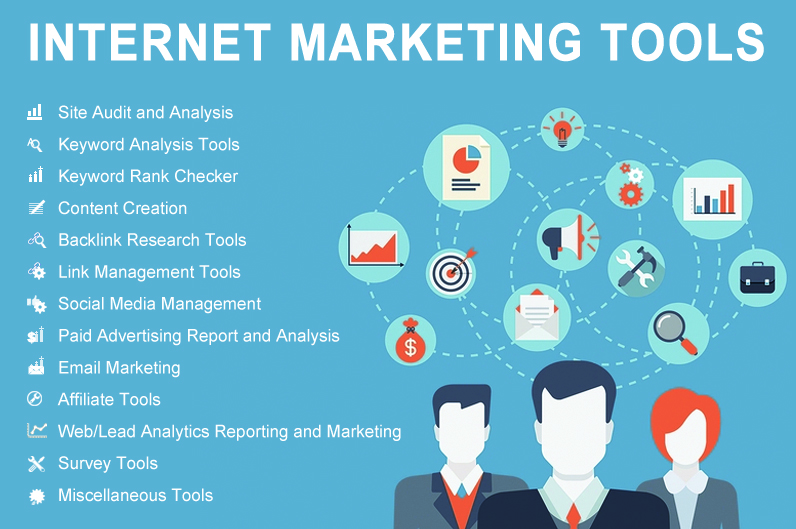
- Mailchimp: A popular choice for small and medium-sized businesses, offering a free plan for up to 2,000 subscribers. It provides robust automation features and segmentation capabilities.
- Klaviyo: Specifically designed for e-commerce businesses, Klaviyo excels at personalized email marketing based on customer behavior.
- Constant Contact: Easy-to-use platform with a strong focus on email deliverability and customer support.
- Sendinblue: Offers a range of email marketing features, including SMS marketing and transactional email.
Essential Features:
- Segmentation: Dividing your email list into smaller groups based on demographics, interests, and purchase history.
- Automation: Setting up automated email sequences (e.g., welcome emails, abandoned cart emails) to nurture leads and drive conversions.
- Personalization: Tailoring email content to individual subscribers.
- A/B Testing: Testing different email elements (subject lines, content, calls to action) to optimize performance.
SEO Tools – Optimizing Your Website for Search Engines
Search Engine Optimization (SEO) is crucial for driving organic traffic to your website. SEO tools help you identify opportunities to improve your website’s ranking in search results. Some popular options include:
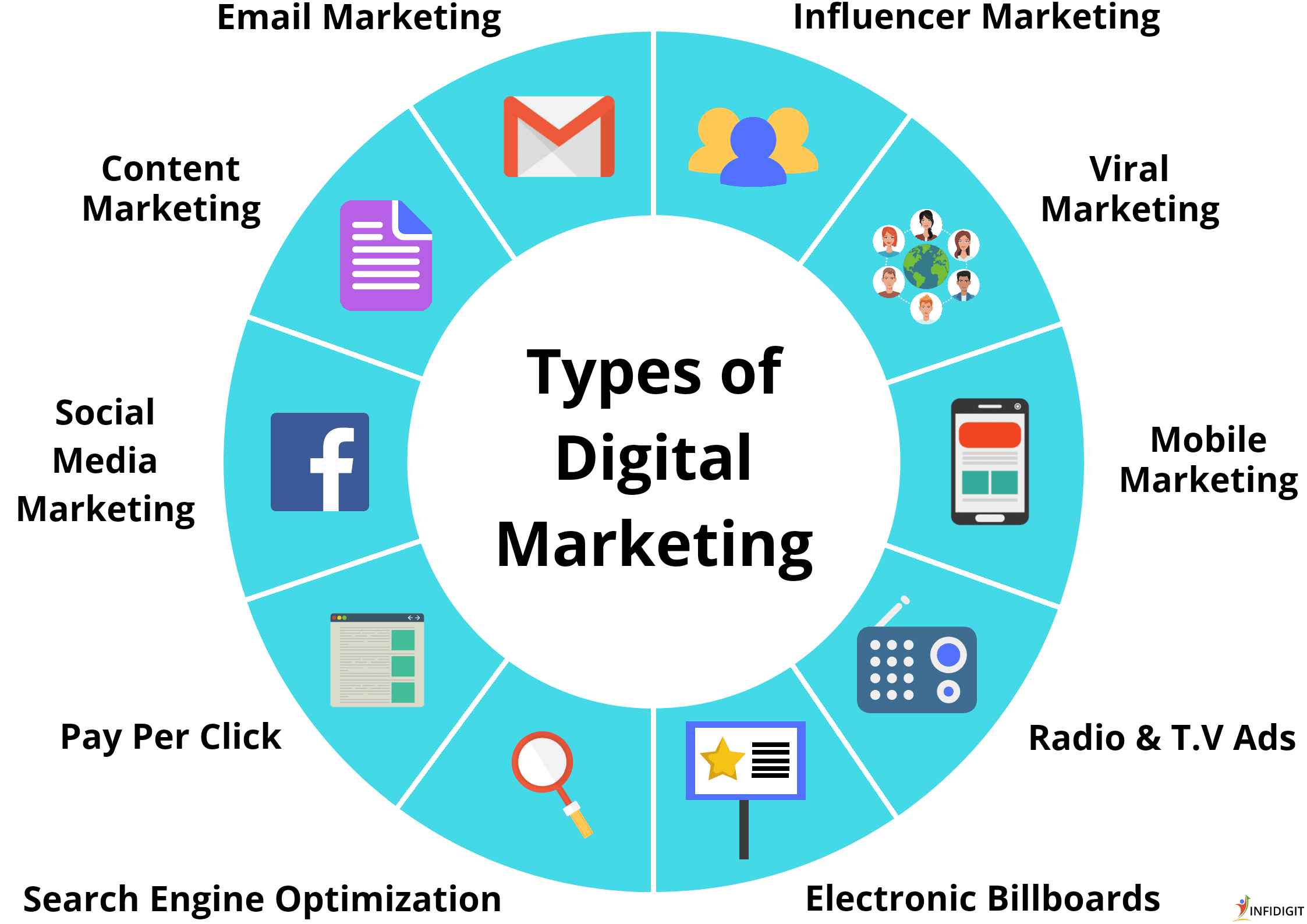
- Google Search Console: A free tool from Google that provides insights into your website’s performance in Google Search. It helps you identify technical issues, track keyword rankings, and monitor mobile usability.
- SEMrush: A comprehensive SEO toolkit offering keyword research, competitor analysis, site audits, and rank tracking.
- Ahrefs: Another powerful SEO tool with a focus on backlink analysis and competitor research.
- Moz Pro: Provides a suite of SEO tools, including keyword research, rank tracking, and site audits.
Key Features to Look For:
- Keyword Research: Identifying relevant keywords to target in your content.
- Competitor Analysis: Analyzing your competitors’ SEO strategies.
- Site Audit: Identifying technical issues that may be hindering your website’s ranking.
- Rank Tracking: Monitoring your website’s performance in search results.
Analytics & Reporting – Measuring Your Success
Tracking your marketing efforts is essential for understanding what’s working and what’s not. Analytics and reporting tools provide valuable insights into your campaign performance.
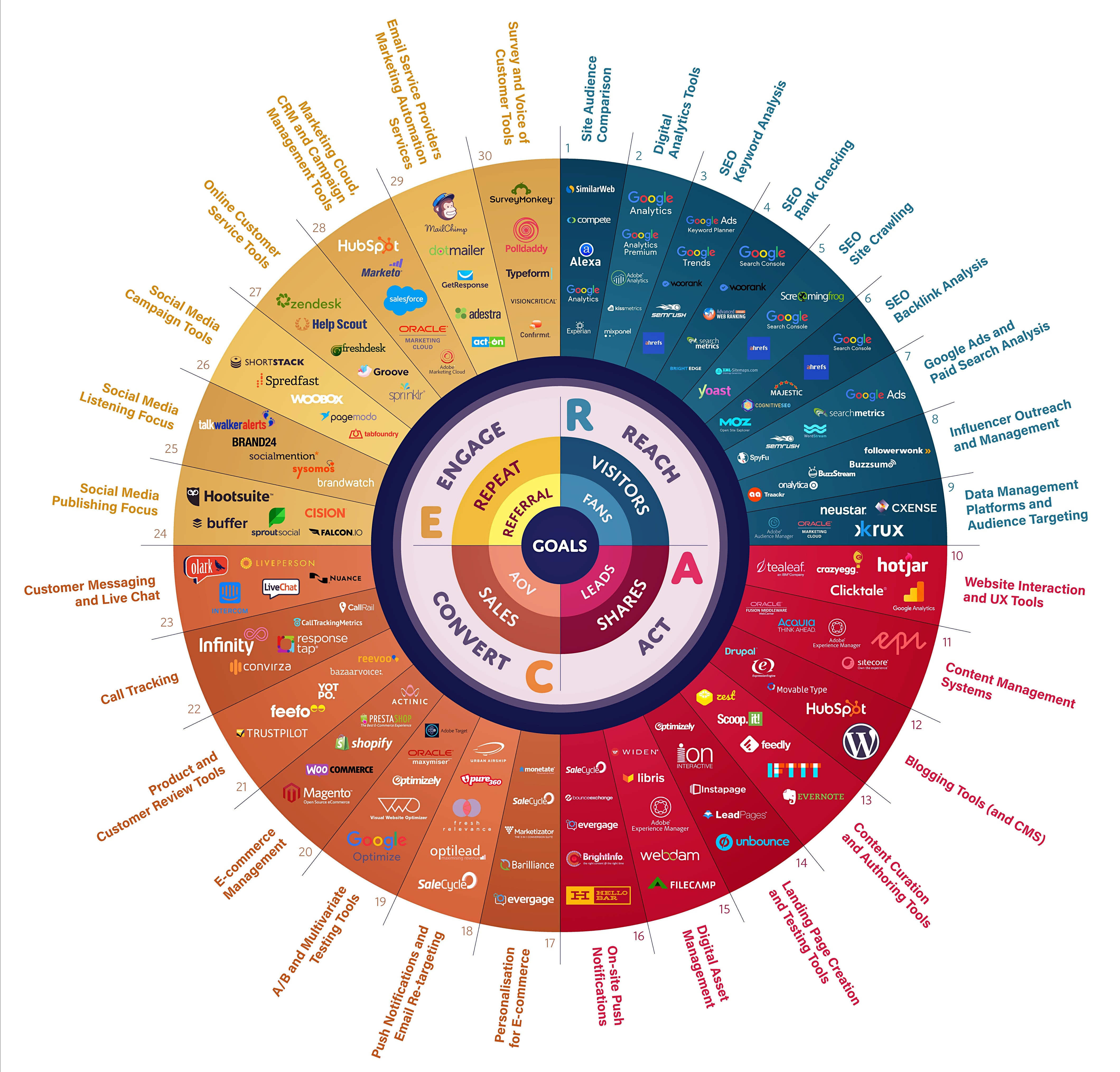
- Google Analytics: The industry-standard tool for tracking website traffic, user behavior, and conversions.
- Google Data Studio: A free tool for creating custom dashboards and reports from Google Analytics data.
- Adobe Analytics: A more advanced analytics platform with sophisticated reporting capabilities.
Key Metrics to Monitor:
- Website Traffic: The number of visitors to your website.
- Bounce Rate: The percentage of visitors who leave your website after viewing only one page.
- Conversion Rate: The percentage of visitors who complete a desired action (e.g., making a purchase, filling out a form).
- Cost Per Acquisition (CPA): The cost of acquiring a new customer.
Content Creation – Fueling Your Marketing Efforts
Creating high-quality content is a cornerstone of successful digital marketing. Content creation tools can help you generate ideas, write copy, and design visuals.
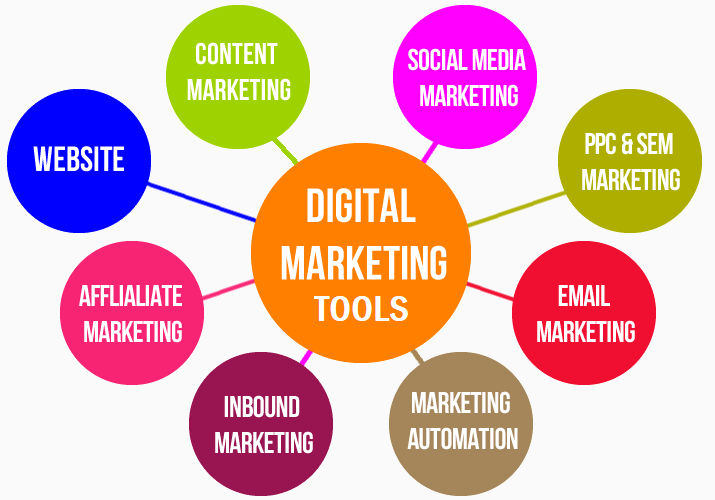
- Google Docs: A free and collaborative document editor for writing blog posts, articles, and other content.
- Grammarly: A grammar and spell checker that helps you improve the clarity and accuracy of your writing.
- Canva: A user-friendly graphic design tool for creating social media graphics, presentations, and other visual content.
- Jasper.ai: An AI-powered content creation tool that can help you generate blog posts, social media captions, and other marketing copy.
Conclusion – Maximizing Your Digital Marketing Investments
Digital marketing tools are constantly evolving, offering new and innovative ways to reach your target audience and achieve your marketing goals. By strategically selecting and utilizing the right tools, you can streamline your processes, improve your results, and maximize your return on investment. Remember that the most effective approach is often a combination of tools, tailored to your specific business needs and objectives. Continuous monitoring, analysis, and optimization are key to long-term success in the dynamic world of digital marketing. Investing in the right tools and understanding their capabilities will undoubtedly contribute to a more robust and effective marketing strategy.
